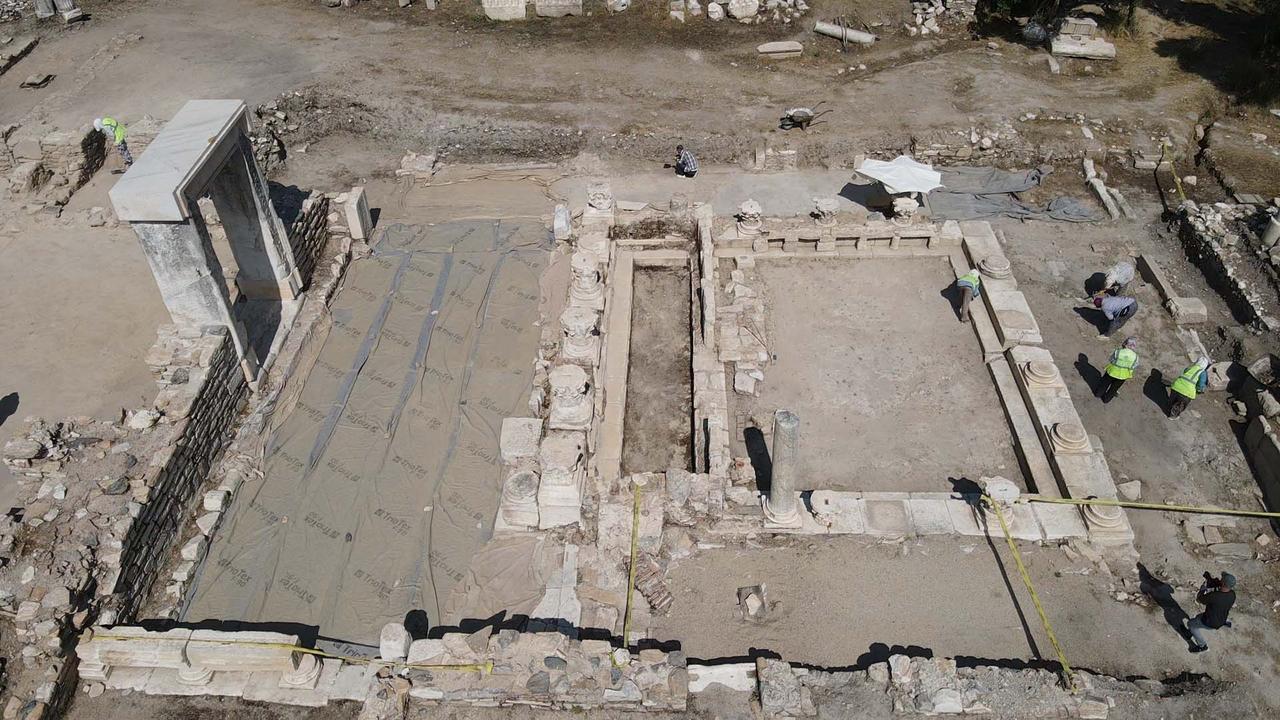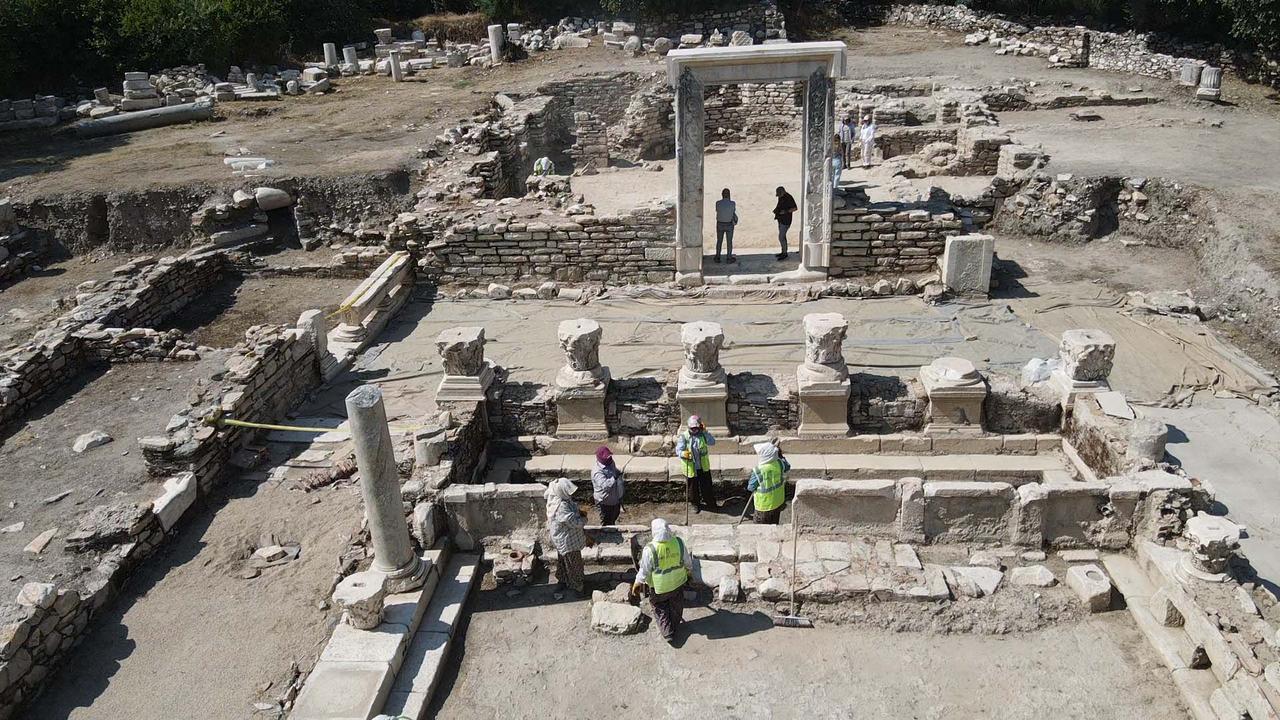Archaeologists in Türkiye have made a significant discovery in the ancient city of Stratonikeia, revealing the remains of a Roman era library believed to be over two thousand years old. This discovery adds new depth to the understanding of daily life and intellectual culture in one of the most important cities of the ancient Carian civilization.
Stratonikeia, located in the Muğla Province of southwest Türkiye, has long been a treasure trove for historians and archaeologists. Known as one of the largest marble cities in the world, it holds a special place on UNESCO’s World Heritage Tentative List. Recent excavations at the heart of the city have brought to light what experts now identify as a rare Roman era library. Built originally during the Hellenistic period and redesigned in the Roman era, the structure showcases the significance of learning and literacy in ancient urban life.
The library was strategically placed at the intersection of four key streets within the city center, emphasizing its role as a community hub. Architectural analysis suggests that the structure was crafted by a master builder from Ephesus, one of the major cultural centers of the ancient Aegean. This connection points to the exchange of ideas and talent between ancient cities, highlighting the collaborative nature of intellectual advancement during the period.
The design elements of the library speak volumes about its importance. Ornamental features and structural elegance reflect the Romans’ dedication to preserving knowledge. Later additions in the fourth century, including decorative mosaics, indicate the continued use and cultural relevance of the space during late antiquity. These findings suggest that the library remained a vibrant part of community life for centuries, providing a place for reading, learning, and possibly even teaching.
Stratonikeia itself holds a rich historical legacy. Referred to as the City of Gladiators, it has been under excavation since 1977. The city was once a key urban center for the Carians, an ancient people of southwestern Anatolia. Greek historian Herodotus wrote about them in the fifth century BC, further establishing the city’s long standing presence in historical texts. The discovery of the library adds to a growing list of significant archaeological findings that paint a more complete picture of life in the ancient world.

This recent discovery also follows another major archaeological breakthrough in Türkiye. In Gordion, near modern day Ankara, experts uncovered a well preserved wooden burial chamber at the site of Tumulus 26. Believed to belong to a royal member of the Phrygian kingdom, possibly a relative of the legendary King Midas, the chamber offers new insights into burial customs and social hierarchy in the eighth century BCE. Both discoveries point to Türkiye’s growing role in uncovering ancient heritage that shaped early civilizations.
With each new find, Türkiye continues to position itself as a vital link in the story of human history. The uncovering of the Roman era library in Stratonikeia is not just an archaeological success but a cultural milestone. It opens up possibilities for further research into the role of literature, knowledge exchange, and public spaces in ancient cities.
Follow Travel Moves on Instagram and Facebook for more fascinating travel stories, heritage discoveries, and cultural insights from across the world.








